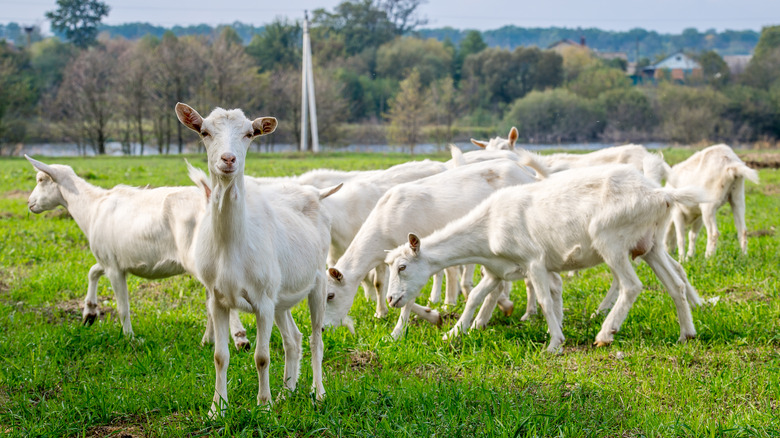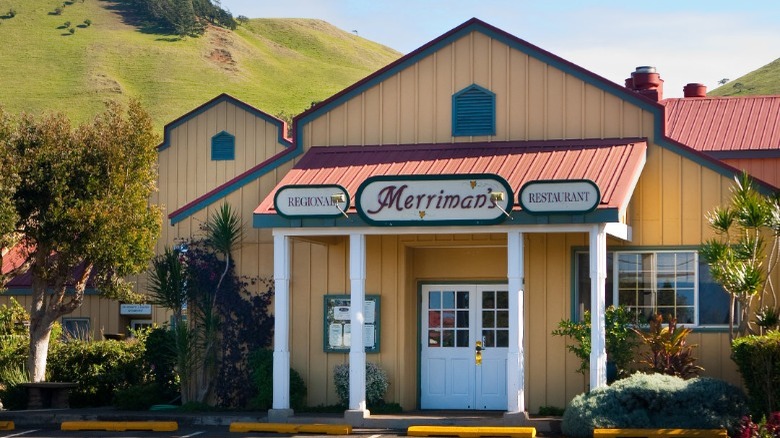Because Of Goats, Hawaii Has Its Very First Carbon Neutral Restaurant
Hawaii officially has its first carbon neutral restaurant. The Waimea-based restaurant Merriman's recently announced its 2023 sustainability plan. By partnering with the non-profit GreenPlaces, it was able to identify its largest carbon contributors, and make innovative changes to the restaurant's structure to reach carbon neutrality.
The restaurant's founding chef Peter Merriman has always been focused on "doing the right thing" ever since his restaurant first opened in 1988. He had been working for years as the head of Hawaii Regional Cuisine to develop the local foodways and agriculture of the Hawaiian islands. Most of the island's agriculture was focused on profiting on cane sugar and pineapple for export, but Merriman worked to start developing local agriculture instead of relying on food being shipped from far off places.
His goal for Merriman's has always been to care for the Hawaiian islands, and make it a sustainable place for farmers, fishermen, and his chefs. "Your little plot where you grew your taro was called your kuleana, and so that kuleana has come to mean responsibility. As a restaurateur in Hawai'i, I have a kuleana to help protect the islands and do as much as we can for the entire planet," Merriman told Food & Wine.
Seaweed-eating goats make a difference
Food & Wine reports that reaching carbon neutrality started with an assessment of the restaurant's carbon footprint. This was conducted with the help of GreenPlaces, and found that there were several areas that were large contributors which could be addressed. The restaurant already had some sustainable practices — such as solar panels in place — but still needed to make other large shifts toward reducing its footprint.
One surprisingly large source of carbon emissions for the restaurant was actually the goats that supply its cheese. The methane emissions from goats and other livestock are a significant contributor to greenhouse gasses. To counter this, they started sourcing their goat milk from Hawaii Island Goat Dairy, who feed their goats a diet of limu kohu seaweed, which in turn reduces their emissions by 85%.
Food & Wine says that Merriman's also committed to swapping out all of its natural gas-fueled stoves with electric induction units, and replacing the bottles used for its wine and spirits. The process of creating and shipping these heavy bottles makes up 29% of the wine industry's carbon footprint, and so Merriman's has partnered with suppliers to use lighter bottles instead.
Carbon neutral also means that there is an effort to offset the inevitable carbon impact that comes with doing business. To do this, Merriman's supports the Klawock Heenya Forestry Project in Alaska, and the Pacajai REDD+ Rainforest Project in Brazil, and hopes to support more projects in Hawaii this year. "The restaurant business is a reflection of society, and [sustainability] is important for our industry, not just in Hawai'i, but all over," Merriman revealed. "We can at least do our part."

